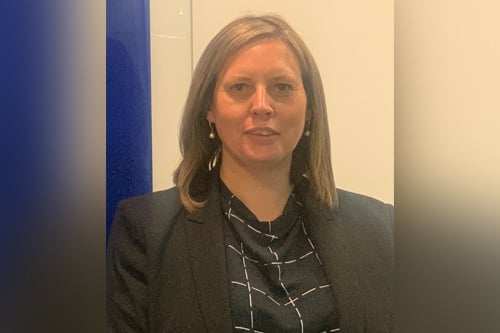

Working in a variety of leadership roles throughout her career in the financial services sector has granted the head of people engagement, culture & strategy, at AXA UK, Zoe Ashdown (pictured), with a keen understanding of the key issues facing diversity and accessibility within the insurance industry. In a recent interview with Insurance Business, Ashdown outlined the recent gender pay gap results released by AXA and the work that the insurance sector must continue to do to close this gap.
“Our median pay gap has reduced by 0.2% and our bonus pay gap by 6.4% since last year,” she said, “and this means we’re heading in the right direction but we’re still facing hurdles when it comes to achieving true gender parity. We’ve learned that there is no silver bullet when it comes to achieving diversity and inclusion.”
Looking to the future, Ashdown is cautiously confident that the gender pay gap will close but noted that this was not going to be easy. As a society, she said, we need to find new ways to move progress more quickly. She highlighted a report from the World Economic Forum in 2019 which found that it will take over 250 years to close the gender pay gap at the current rate of progress. This calls for organisations to adopt fresh and bold new tactics to tackle gender inequality, she said.
Gender equality is an issue that has to be addressed not just by society, she said, but also by employers and policymakers so that women and men have got suitable choices and are exposed to equal opportunities when it comes to their careers and their personal lives. AXA is committed to gender parity not just because it is the right thing to do, she said, but because it encourages a diverse workforce which better represents its customer base.
“Unless we create an environment in which everyone, regardless of their background can thrive,” she said, “we won’t reach our goal, and that’s to become one of the most inspiring companies to work for.”
To help achieve this ambition, AXA has implented a wide range of initiatives both within gender equality and wider diversity and inclusion, she said, from employee resource groups to a diversity and inclusion team, to its ‘Women in Leadership’ programme. This programme, which is currently in its fourth cohort, has benefited more than 80 women since its inception, Ashdown said, and is now being reviewed to become more inclusive to both men and women looking to progress within the company.
“Gender equality has got to engage everyone, including men,” she said, “and men, like everyone, have a responsibility to help strengthen their inclusive workplace cultures. This means them being inclusive leaders and acting to improve the lives and experiences of others.”
Women can’t take full advantage of career opportunities, Ashdown believes, until a broadening of the definition of male success occurs. This means men taking advantage of parental responsibilities and a flexible working programme, she said. One of the things AXA will be doing throughout the year to encourage this, she outlined, is highlighting the male role models who have taken part in such initiatives as flexible working.
Mentorship and role models are essential when it comes to encouraging more women to apply for and receive senior roles at AXA, and in the insurance sector in general, Ashdown stated. Personally, she said, she has benefited from excellent mentors throughout her career and not only through the support they have given her but also the challenges they have offered her. She feels passionate about paying this back, she said, and has become a mentor both internally and externally to the organisation as this is something that she genuinely believes has measurable value.
Exposure to role models within the industry encourages women to apply for more senior roles, she said, but this is just one piece of the puzzle and it must be matched by businesses developing inclusive workplace cultures that allow diverse talent to thrive.
Having combined her impressive career trajectory with raising a family, Ashdown has experienced first-hand what it is like to be a working parent in a variety of different contracts from job share, to part-time, to full-time, to working remotely, and she understands the essential opportunities that flexible working offers to staff.
“[We must] understand that the needs of our employees can change throughout their life and their careers,” she said, “and it’s really important to note that one size doesn’t fit all. Supported by our ‘ways of working’ policy,” she said, “we have conversations with all of our employees around what it is that they need from us as an employer that will let us help them achieve their goals.”
